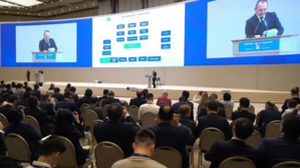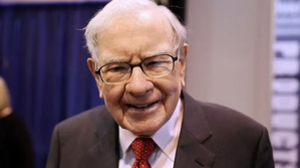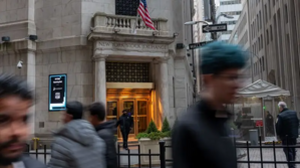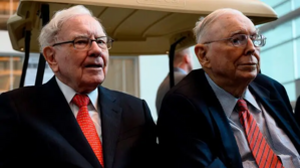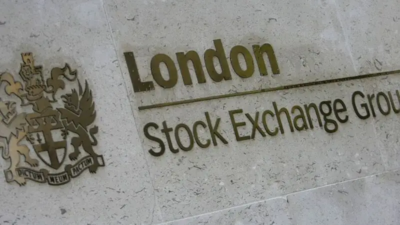Main Street is still investing like it’s 2023
A version of this story first appeared in CNN Business’ Before the Bell newsletter. Not a subscriber? You can sign up right here. You can listen to an audio version of the newsletter by clicking the same link.
Shares of Tesla have fallen by about 24% so far this year while the S&P 500 has gained nearly 4%. Recalls, lawsuits and Elon Musk’s controversial leadership have contributed to the automaker’s declines. But retail investors don’t seem to mind. They’re still piling into the stock.
Tesla was among the most popular stocks purchased by Charles Schwab clients in January, according to the Schwab Trading Activity Index (STAX), which measures the broker’s 35 million users to gauge retail exposure to the financial markets.
Overall, retail traders piled into Big Tech last month. Nvidia, Amazon, Microsoft and Advanced Micro Devices were also popular names.
Before the Bell spoke to Joe Mazola, director of Schwab Trader Education, about the growing importance of retail investors in markets, where Main Street is investing and why people are still enamored with Elon Musk.
This interview has been edited for length and clarity.
Before the Bell: Tesla was the most popular stock on your index, and yet it was the weakest of the Magnificent Seven. Why are retail investors so eager to invest in it?
Joe Mazzola: It’s not Tesla, it’s [Tesla CEO Elon Musk]. I think at some point this stock will have to trade at an automotive multiple, it’s not going to trade on an Elon multiple forever. I don’t know when that is. But all maturing companies within the growth sector, at some point, move towards their sector multiple. That has not occurred at this point for Tesla, but the assumption is that at some point it will.
Why is it so important to single out retail investors and track where they’re putting their money?
We want to get an idea of the actual behavior of retail investors. This index isn’t based on the attitudes of investors or what they say they’re going to do, it shows what they’re actually doing. There are times where we see a deviation between those things. I think that’s important.
I think it adds a third prong to investor analysis. You have your fundamentals and your technical analysis, and now you have a little bit more. You know what retail accounts are doing. I see it as a tracking device for whether there’s bullish or bearish sentiment in the markets.
Trading among retail investors was moderately low in January. Why the downturn?
Part of it had to do with increases in market levels in November and December. People likely came into the year with a heightened awareness that the rally could soon end. But I would say there was a reserved optimism, and our clients still want to be in the markets.
There’s a strong economic backdrop here, and what we saw was a rotation trade [when traders shift their Investments to certain industries in anticipation of the next economic cycle]. That was the theme for January.
Back in November and December, we saw rates start to crumble. The 10-Year [US] Treasury yield fell to about 3.8%. That’s when we saw a lot of clients rotating into the utilities, real estate and financial sectors and those did very well.
But once it became clear that the Federal Reserve wasn’t going to be as aggressive with rate cuts as we thought and after economic data came in a little bit hotter than expected in January, interest rates ratcheted up fairly quickly. Investors started buying more selectively, and exposure was added mostly through the Magnificent Seven [that’s Apple, Amazon, Alphabet, Meta, Microsoft, Nvidia and Tesla].
Retail investors turned back the page and used their playbooks from the beginning of 2023, when we were in a similar situation with rates going up. They wanted growth stocks.
Is there a big difference between what retail investors and institutional investors are doing right now?
Retail investors may be playing catch up right now. They’ve been looking at the returns on the S&P 500 and realize they’d do much better if they were just invested in the Magnificent Seven. That also explains the rotation trade we saw at the end of last year.
Retail clients tend to follow institutional investors, that’s something we teach in our educational offerings. We want them to be able to see where big money is going.
Fed Chair Powell: The ‘time is coming’ for a rate cut
Federal Reserve Chair Jerome Powell said the time is coming for interest rate cuts, but asked Americans for a bit more patience in the central bank’s fight against inflation.
The US economy is strong and the central bank will likely lower later interest rates later this year, he said, but it’s just “not likely” to happen this March, as Wall Street once expected it to.
“We’ve said that we want to be more confident that inflation is moving down to (the Fed’s target rate of) 2%,” Powell said in an interview that aired Sunday on CBS’ “60 Minutes.” “I think it’s not likely that this committee will reach that level of confidence in time for the March meeting, which is in seven weeks.”
Powell last appeared on the program in April 2021, about 11 months before the central bank began a two-year regimen of aggressive interest rate hikes to fight accelerating inflation rates.
The Fed’s benchmark lending rate is currently at a 23-year high, but a policy pivot appears imminent. The Fed held interest rates steady last week for its fourth-straight policy meeting and rate cuts are expected sometime this year.
Price hikes have eased substantially in recent months, inching closer to the Fed’s 2% target. That means the Fed is due to cut rates in 2024, which officials themselves projected in December. But the central bank’s January policy statement pushed back on expectations of the first rate cut coming at their next meeting in March.
Powell emphasized that sentiment in his post-meeting news conference last Wednesday, saying “there was no proposal to cut rates,” and that cutting in March is “probably not the most likely case.”
Powell echoed that view on Sunday. “Our confidence is rising. We just want some more confidence before we take that very important step of beginning to cut interest rates,” he told “60 Minutes” correspondent Scott Pelley.
Still, financial markets see a 20% chance the Fed will cut rates in March and a 71.3% chance they cut in May, according to the CME FedWatch Tool.
“Of course we pay attention to markets and we understand what’s going on in financial markets around the world,” said Powell of the mismatch between Wall Street and policymakers’ views.
“I can’t overstate how important it is to restore price stability, by which I mean inflation is low and predictable and people don’t have to think about it in their daily lives,” Powell said. “In their daily economic lives, inflation is just not something that you talk about. That’s where we were for 20 years. We want to get back to that, and I think we are on a path to that. We just want to kind of make sure of it.”
Powell that he still expects that the Fed will likely cut rates three times this year, as projected in the central bank’s December forecasts.
“Nothing has happened in the meantime that would lead me to think that people would dramatically change their forecasts,” he said.
Read more here.
23andMe is low on cash and its stock is worth pennies. The CEO wants another chance
Just three years ago, DNA testing company 23andMe was the golden child of Wall Street and Silicon Valley. Today, the firm is at risk of being delisted from the Nasdaq.
But 23andMe’s CEO, Anne Wojcicki, tells CNN that Wall Street shouldn’t count her out yet.
Despite the firm’s initial popularity, the former tech unicorn’s funds have dried up and its value has dropped a stunning 96% since its peak share price of $17.65 in February 2021.
Shares of 23andMe are now priced at about $0.70, and in November the company was informed that it was in violation of Nasdaq rules that require a company to maintain a stock price above $1. That means it has about three months to bring the price up or risk being delisted.
“We’re very aware of this,” Wojcicki told CNN on Thursday evening. “We’re making the necessary changes to make the business sustainable, and then it’s going to be about growing it again.”
The company recently came under fire for security breaches that impacted 6.9 million users and has struggled to find a way to keep customers engaged with its products after they’ve used the one-time DNA kit. Wojcicki says she and 23andMe are now heavily focused on drug development, but that’s an expensive and risky endeavor that could take decades to pay off.
Of more immediate concern: The company has yet to turn a profit, and 23andMe could run out of money as early as next year.
Wojcicki says that the future of 23andMe is in harnessing their DNA database to find cures or treatments for cancer and autoimmune diseases like rheumatoid arthritis, lupus and Crohn’s disease.
“The vision and where we’re going is solid, but the path to get there is more turbulent,” she said.
Wojcicki is certain that genetic sequencing will transform healthcare and drug discovery, and that 23andMe is in a position to take full advantage of that when it happens.
But drug discovery is a very long process and it can be anywhere from 10 to 15 years on average from target discovery to an FDA-approved drug.
The question is whether investors are willing to wait that long.
Read more here.
Maybe You Like
London Stock Exchange urged to do more to hold onto retail traders
The UK stock market needs to improve investor communication and engagement in order to retain its individual traders, according to a report from online trade and investor provider CMC Markets. ADVERTISEMENTUK retail investors are increasingly...
Hargreaves Lansdown rejects private equity takeover bid
The UK investment platform says the offer from a group including the Abu Dhabi Investment Authority undervalues the firm. ADVERTISEMENTHargreaves Lansdown has rebuffed a takeover proposal worth £4.67 billion (€5.48 billion) made...
Ferrovial set to offload UK regional airports amid Heathrow deal uncertainty
Ferrovial is planning to sell its stake in three UK regional airports amid difficulties in finalising its £2.4bn sale of a 25% stake in Heathrow. ADVERTISEMENTSpanish infrastructure company Ferrovial is reportedly putting up for sale...

